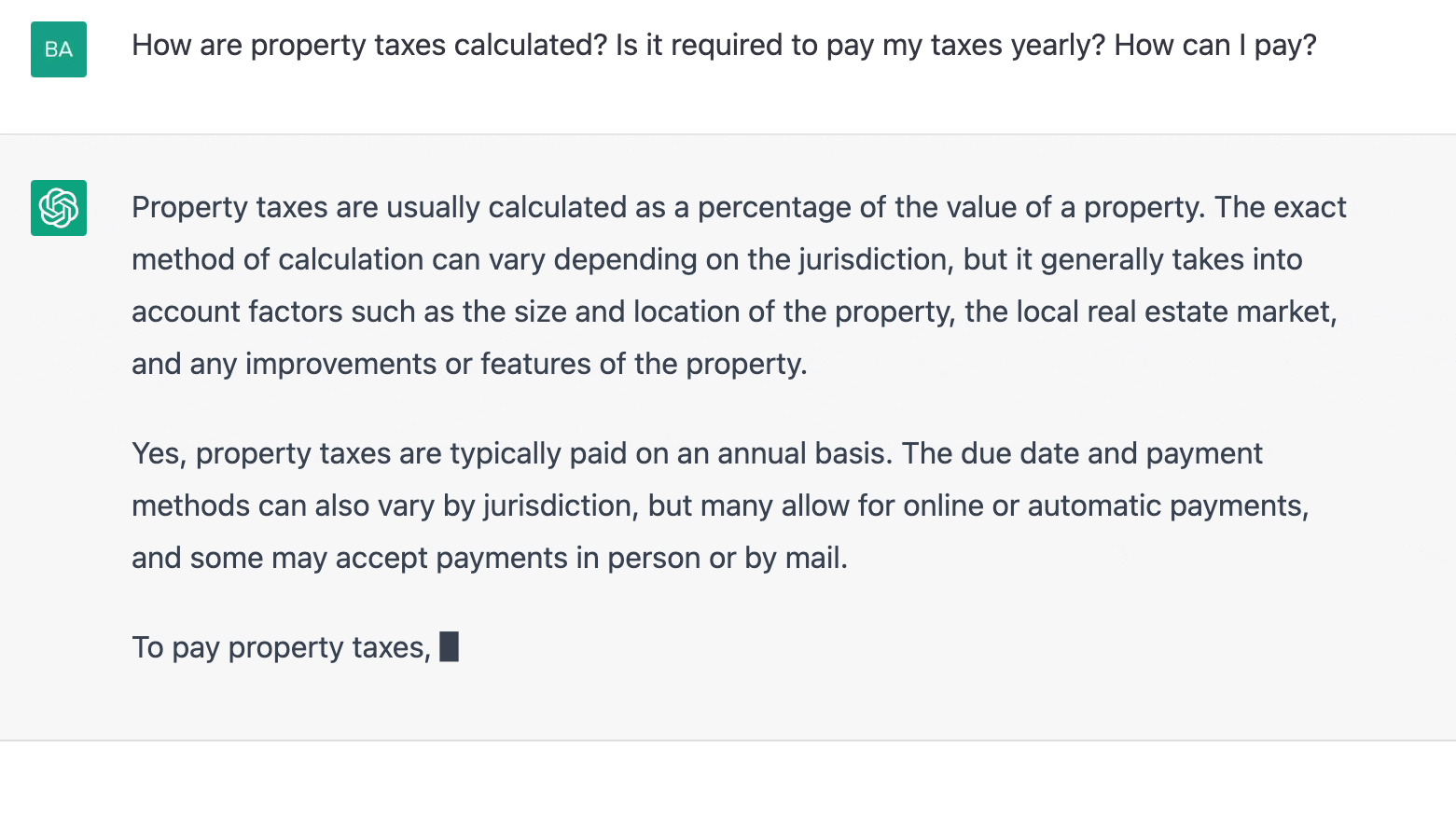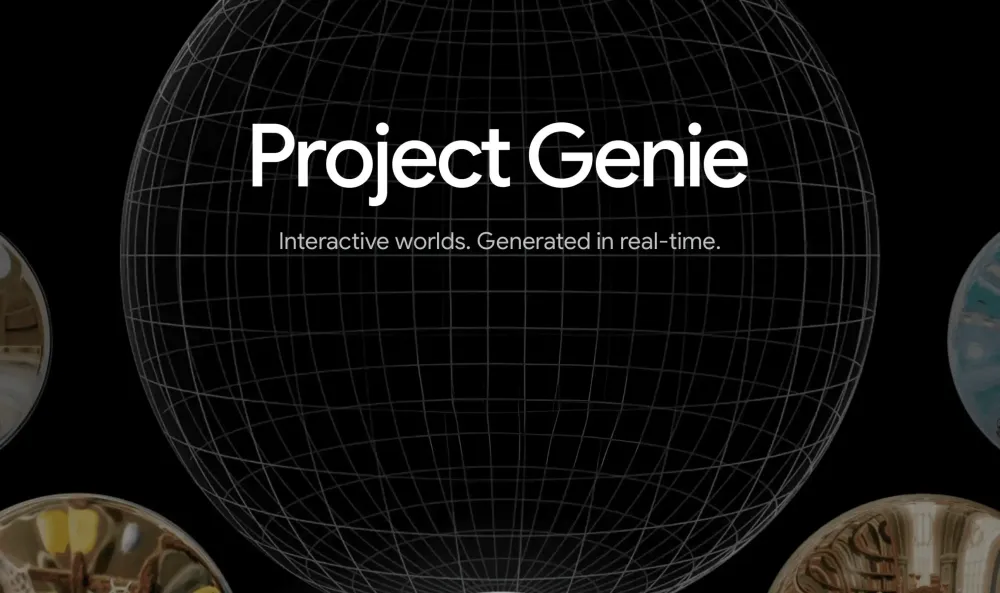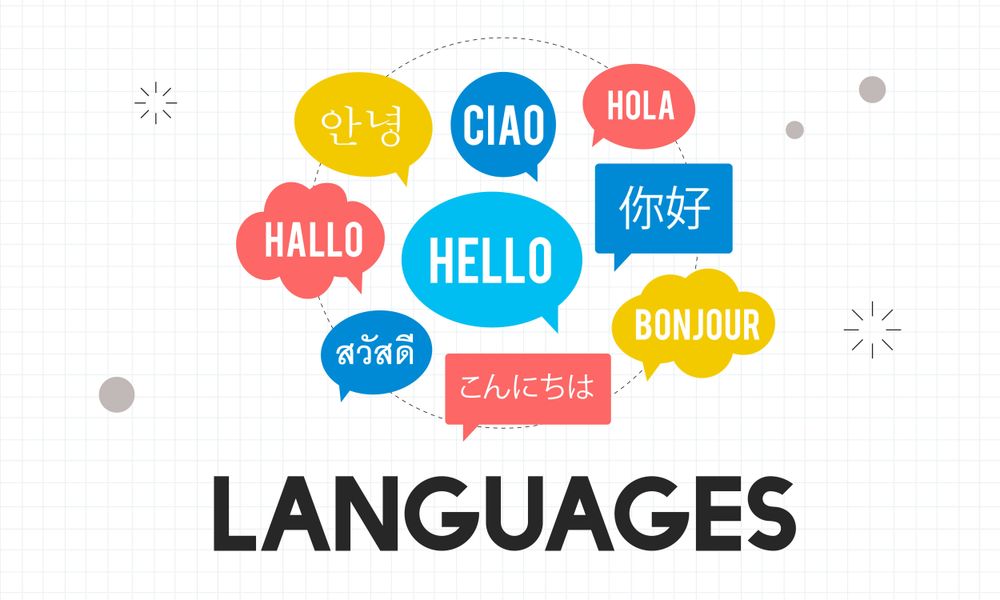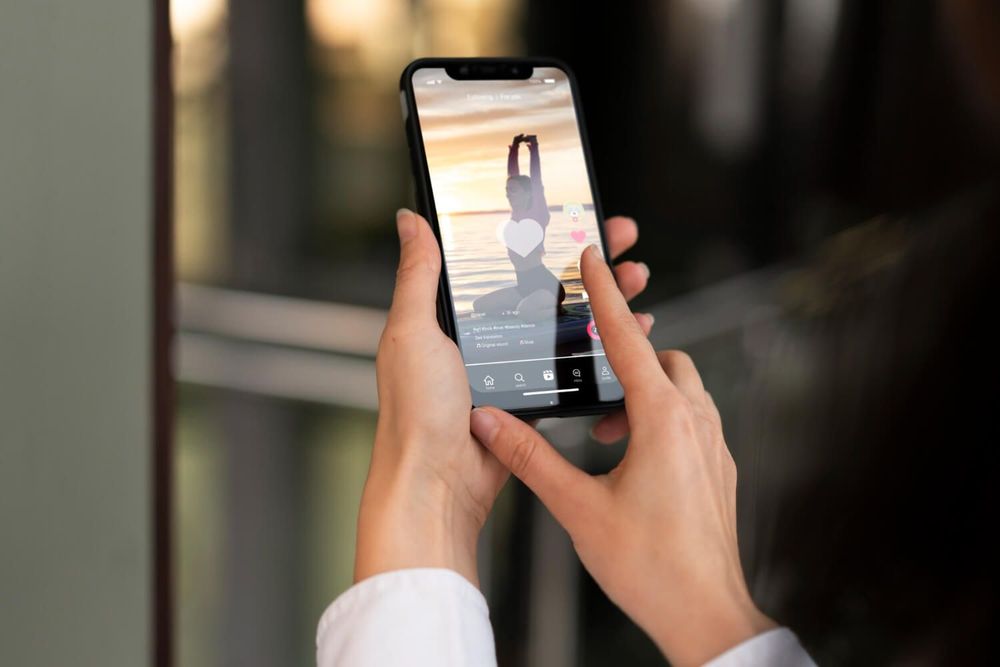Artificial Intelligence (AI) has come a long way, and today, we have AI-powered tools that can mimic human-like conversations with remarkable accuracy. One such tool that has taken the world by storm is ChatGPT - an AI-powered chatbot that uses the latest natural language processing techniques to understand and respond to human language. In this article, we'll explore why ChatGPT is a game-changer in the world of chatbots.

What is ChatGPT?
ChatGPT is an AI-powered natural language processing tool that enables users to engage in human-like conversations and carry out various tasks with the assistance of a chatbot. These tasks include answering questions and helping with tasks such as drafting emails, essays, and code. Currently, ChatGPT is freely available to the public as it is still in the research and feedback-gathering stage. However, as of February 1, a paid version called ChatGPT Plus is also available.Who made ChatGPT?
OpenAI, an AI and research company, developed ChatGPT and launched it on November 30, 2022. In addition to ChatGPT, OpenAI has also created other AI-powered technologies such as DALLE•2, a widely-used AI art generator, and Whisper, an automatic speech recognition system. How big a deal is ChatGPT? ChatGPT has received widespread attention, with some calling it a major breakthrough. Elon Musk, one of OpenAI's co-founders, stated that "ChatGPT is scary good. We are not far from dangerously strong AI." Meanwhile, Sam Altman, the chief of OpenAI, shared on Twitter that ChatGPT had already amassed more than 1 million users within its first five days of launching. Altman also revealed that the average cost of each response was in "single-digits cents," but acknowledged that the "eye-watering" compute costs would eventually require monetization. According to an analysis by Swiss bank UBS, ChatGPT is the fastest-growing app in history. Within just two months of its launch in November 2022, the analysis estimates that ChatGPT had reached 100 million active users. By comparison, it took nine months for TikTok to achieve the same level of adoption.How can you access ChatGPT?
To use ChatGPT, simply visit their website or create an account with AI's offering ChatGPT services such as AI-PRO. Once you've signed in, you can start chatting with ChatGPT by asking a question. Since ChatGPT is still in its research phase, it's free to use, and you can ask as many questions as you like. If you receive a message saying ChatGPT is at capacity, it means that too many people are trying to access the site at the same time, causing the server to become overloaded and unable to process requests. Don't worry, this doesn't mean you won't be able to access ChatGPT in the future. You can try again at a later time when fewer people are using the site or keep the tab open and refresh it periodically. For those who want reliable and immediate access to ChatGPT, there is an option available. As of February 1st, OpenAI launched ChatGPT Plus, a pro plan that allows users to have general access to the chatbot even during peak times, experience faster response times, and receive priority access to new features and improvements. However, this premium service comes with a cost of $20 per month. You may also go to AI-PRO.org , an alternative website offering AI tools products powered by ChatGPT, Stable Diffusion, Dall-E, etc.How are people using ChatGPT?
In addition to answering simple questions, ChatGPT has a wide range of functions, including composing essays, describing art in great detail, generating AI art prompts, engaging in philosophical conversations, and even coding. Among these functions, one of the practical uses is requesting assistance from the chatbot to create basic lists such as packing, grocery, and to-do lists to make my daily routine more productive. The potential applications of ChatGPT are limitless.Create Emails

Ask for business advice

Ask for programming tips

Summarize articles in a bulleted list

Ask for instructions

Write a poem

How does ChatGPT work?
ChatGPT utilizes a language model architecture called the Generative Pre-trained Transformer (GPT), which was developed by OpenAI. Specifically, ChatGPT employs a fine-tuned version of the GPT-3.5 model series, which has been trained on massive amounts of internet data, such as books, news articles, and websites. It recently released GPT-4, a more powerful model. To refine the language model, OpenAI employed both supervised and reinforcement learning techniques. One unique aspect of ChatGPT's development is the use of Reinforcement Learning from Human Feedback (RLHF). In this approach, human AI trainers engage in conversational interactions with the model, assuming both the user and AI assistant roles. What is the difference between ChatGPT and a search engine? ChatGPT and search engines serve different purposes. While a search engine searches the internet for information to provide users with relevant results, ChatGPT is a language model designed to have conversations with users. Unlike a search engine, ChatGPT generates its responses using the information it learned from training data, which may lead to errors. Moreover, ChatGPT's information is only up to 2021, whereas search engines like Google have access to the latest information. Therefore, if you ask ChatGPT about a recent event, such as the winner of the 2022 World Cup, it may not be able to provide you with a response, while Google would.What is the difference between ChatGPT and a search engine?
ChatGPT and search engines serve different purposes. While a search engine searches the internet for information to provide users with relevant results, ChatGPT is a language model designed to have conversations with users. Unlike a search engine, ChatGPT generates its responses using the information it learned from training data, which may lead to errors. Moreover, ChatGPT's information is only up to 2021, whereas search engines like Google have access to the latest information. Therefore, if you ask ChatGPT about a recent event, such as the winner of the 2022 World Cup, it may not be able to provide you with a response, while Google would.What are ChatGPT's limitations?
Although ChatGPT is impressive, it still has limitations. One limitation is that it cannot answer questions that are phrased in a specific way and require rewording to understand. Additionally, ChatGPT's responses can lack quality, as they may sound plausible but make no practical sense or be excessively verbose. Furthermore, the model does not ask for clarification on ambiguous questions and instead takes a guess at what the question means, which can lead to unintended responses. In fact, developer question-and-answer site StackOverflow has temporarily banned ChatGPT-generated responses to questions due to the potential for inaccurate or misleading answers. According to moderators on the question-and-answer site Stack Overflow, the primary issue with ChatGPT is that although the responses it generates may appear good, they often contain errors. Critics contend that these tools are skilled at arranging words in a coherent manner based on statistics, but they lack the ability to comprehend the meaning behind statements or determine their accuracy. Another significant limitation is that ChatGPT's knowledge base is limited to data up to 2021, and it cannot keep up with current events or news. As a result, certain prompts, such as "Who won the World Cup in 2022?" will not yield any useful responses. Can I chat with ChatGPT? While some users have been employing ChatGPT for more advanced purposes like coding or creating malware, the tool is still useful for more casual activities, such as having a friendly chat. You can start a conversation with the model by asking a simple question like, "What's your favorite food?" or a more complex one like, "What is the meaning of life?" Regardless of the topic, ChatGPT is likely to provide a response.Why are some people worried about ChatGPT?
People have raised concerns about the potential impact of AI chatbots on human intelligence. For instance, the ability of the chatbot to generate articles on any topic quickly (even if they may not be entirely accurate) could lead to a reduction in demand for human writers. Similarly, the chatbot's capability to write full essays within seconds could encourage cheating and hinder students' writing skills, leading some schools to block access to it. Another issue is the risk of misinformation spreading through the chatbot. As the bot does not have internet access, it may sometimes provide incorrect information. To address these concerns, the chatbot provides a disclaimer stating that its responses are not to be taken as fact, and encourages users to verify information received from it or any other source. OpenAI also acknowledges that the chatbot's responses may sometimes be "plausible-sounding but incorrect or nonsensical."Does a tool that recognizes ChatGPT text exist?
There is growing concern over students using ChatGPT to cheat in their academic work. To address this issue, OpenAI has released a free tool called the "classifier" to detect AI-written text. However, the tool is not perfect and can only accurately identify 26% of AI-written text, while also producing false positives 9% of the time by mistakenly identifying human-written work as AI-generated. Other AI detectors, such as the GPT-2 Output Detector, Writer AI Content Detector, and Content at Scale AI Content Detection, are also available on the market. However, tests conducted by ZDNET found that all three of these tools were unreliable in detecting AI-generated text, as they repeatedly gave false negatives.Is ChatGPT a good or bad thing?
ChatGPT has the potential to be a valuable tool for assisting people in their daily lives, such as with writing emails or finding information online. However, there are technical challenges that must be addressed to prevent negative outcomes, such as the spread of misinformation. AI and ML models typically require extensive training and fine-tuning to achieve optimal performance. According to OpenAI's Altman, AI is not taking over the world yet, but he believes that AI with human-like intelligence is not too far away. Altman responded to Elon Musk's comment on the potential danger of AI by agreeing that there is a risk of AI becoming dangerously strong, particularly in terms of cybersecurity. Altman also noted that he believes we could achieve real AGI (Artificial General Intelligence) in the next ten years, so we need to take this risk extremely seriously. Altman also mentioned that he finds it interesting to see people discussing whether powerful AI systems should behave in the way users want or their creators intended. He believes that the question of whose values should be aligned with these systems will be one of the most crucial debates that society will have. This highlights the importance of ethical considerations and transparency when developing AI technologies, and the need for a broader conversation around the impacts of these systems on society.Are there alternatives to ChatGPT worth considering?
While ChatGPT is currently receiving a lot of attention, there are several other AI chatbot options that may be just as effective or even better suited to your specific needs. Despite ChatGPT's impressive capabilities, there are significant drawbacks to using the AI chatbot, such as its free version frequently reaching capacity. If you're interested in exploring the world of AI chatbots and writers, there are several other options worth considering, such as YouChat, Jasper, and Chatsonic.Is ChatGPT smart enough to pass an MBA exam?
Yes, that's correct. A professor at Wharton, University of Pennsylvania's business school, used ChatGPT to take an MBA exam and it scored a B to B-. The professor, Christian Terwiesch, was impressed with its ability to answer basic operations management and process analysis questions and provide explanations. Is ChatGPT coming to social media? Snapchat has recently partnered with ChatGPT, marking the AI chatbot's first appearance in the social media space. The integration, called "My AI", allows Snapchat+ subscribers to interact with ChatGPT within the app. Snapchat's integration of ChatGPT, called "My AI," is limited to certain topics. ChatGPT will not provide responses related to politics, violence, swearing, or academic essay writing within the app. These limitations are in place to ensure appropriate and respectful conversations between users and the bot.What is Microsoft's involvement with ChatGPT?
Microsoft has been an early investor in OpenAI, the AI research company that created ChatGPT, even before ChatGPT was released to the public. Microsoft's first investment in OpenAI was in 2019, with $1 billion, and they continued investing with an additional $2 billion in the following years. In January, Microsoft extended its partnership with OpenAI with a multi-year, multi-billion dollar investment. While neither company disclosed the investment value, sources revealed that it will total $10 billion over multiple years, according to Bloomberg. As part of the agreement, Microsoft's Azure service will be the exclusive cloud computing provider for OpenAI, powering all OpenAI's research, products, and API services. Microsoft has leveraged its partnership with OpenAI to enhance its own products, including Bing search engine and its browser. Recently, Microsoft introduced a new version of Bing search engine which uses a next-generation OpenAI large language model tailored specifically for search. Microsoft is also using its partnership to improve the AI-powered chatbot on Bing, although access to it is currently limited.

What does Microsoft's new Bing have to do with ChatGPT?
In early February, Microsoft launched a new version of its search engine Bing, which features a chat function powered by an updated version of OpenAI's large language model. According to Microsoft, this integration makes Bing's chat function more powerful than ChatGPT. Unlike ChatGPT, Bing's chat function is linked to the internet and has access to current events. Additionally, Bing's chat function provides sources for its information, reducing the risk of misinformation.What is Google Bard and how does it relate to ChatGPT?
On February 6, Google introduced Bard, its AI chat service that will rival ChatGPT. Bard is currently in the experimental phase and will be tested by select users before being rolled out to the general public in the coming weeks. Google's Language Model for Dialogue Applications (LaMDA) will power Bard, and it will draw on all available web information to provide responses. This is in contrast to ChatGPT, which does not have internet access. Google's new AI chat service, Bard, had a rocky start with a demonstration that provided incorrect information about the James Webb Space Telescope. In response, Google stated that it emphasizes the importance of a thorough testing process and will be launching a Trusted Tester program this week. Will ChatGPT become a paid service anytime soon? As of February 1, OpenAI launched ChatGPT Plus, a paid subscription model for its popular chatbot. The pro plan offers users unrestricted access even during high-traffic periods when the free version is at capacity. Additionally, users will enjoy faster response times and priority access to new features and updates. However, the premium service comes with a cost of $20 per month. Rumors about a paid version of ChatGPT had been circulating for a while before its official launch on Feb. 1 as ChatGPT Plus. In January, OpenAI announced on its Discord server that it was considering a paid version called ChatGPT Professional and uploaded a waitlist for access. The waitlist outlined that the new service would provide users with service that is always available, fast responses, and unlimited messages. One of the survey questions on the waitlist form asked what price per month the user would consider paying for ChatGPT Pro. An early access user shared a video on Twitter showing a test prompt on the pro version, which ran much quicker than the free version. In the video, the user's subscription cost was $42/month, but the actual cost OpenAI set for the plan is a little more than half less.
Sources: Images from Pexels.com zdnet.com




